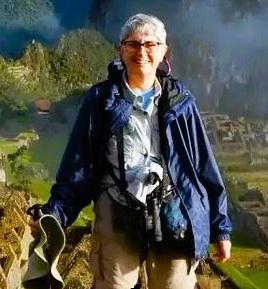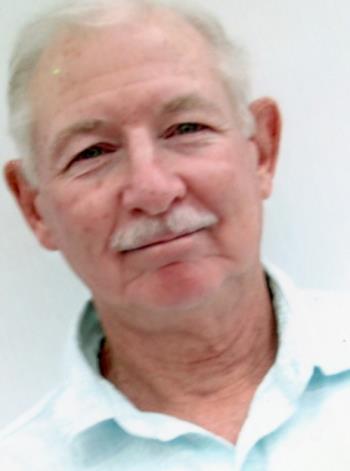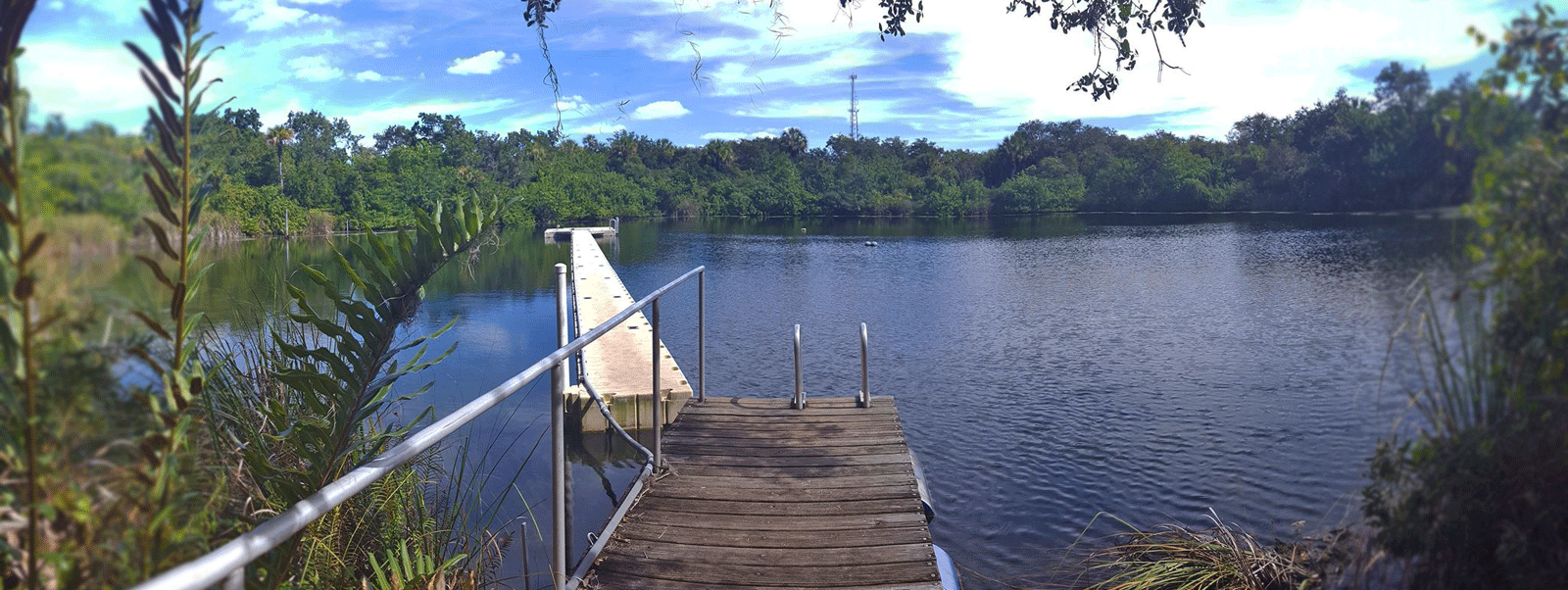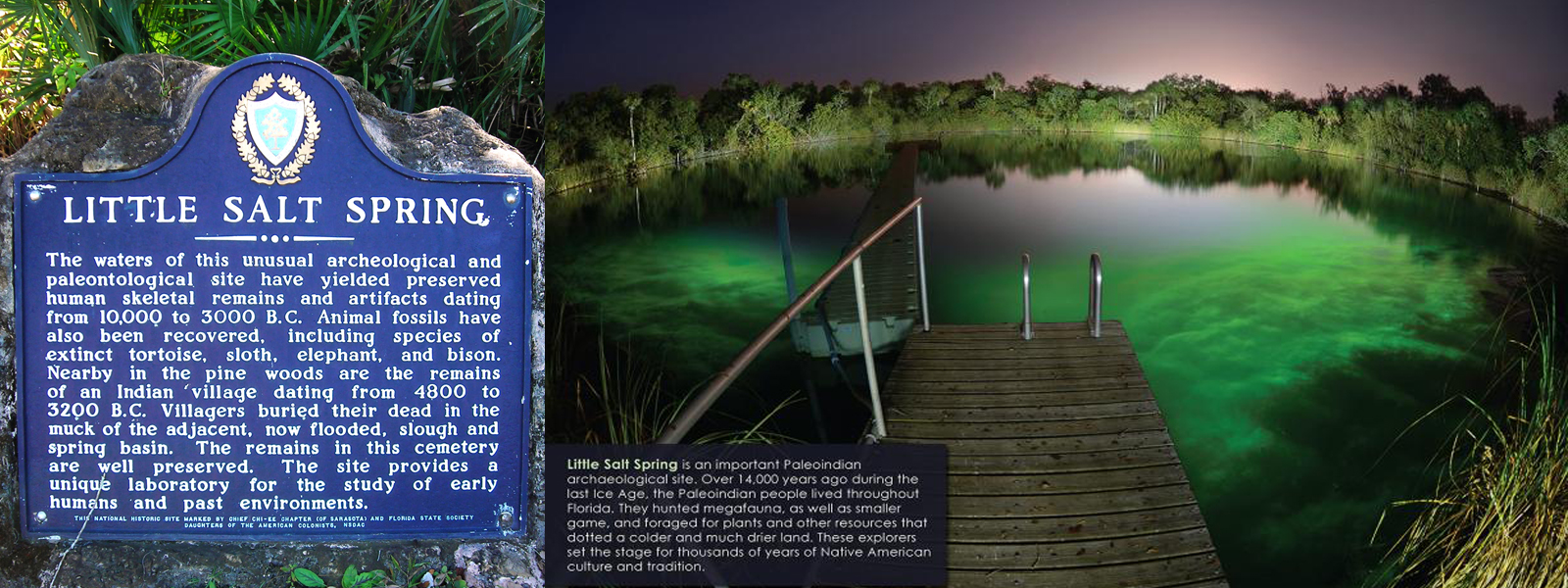OUR MEETINGS
 We meet the second Tuesday of the month (except June-August) at 7:00pm, currently via ZOOM. All meetings are open to the public.
We meet the second Tuesday of the month (except June-August) at 7:00pm, currently via ZOOM. All meetings are open to the public.
FIELD TRIPS & EVENTS
 We often take trips to regional historic or archaeological sites, as well as Florida museums, to learn and have fun. These trips may include bus rides or carpooling, sometimes walking and hiking, and usually a lunch or other snacks. Costs will vary, and most trips are open to the public.
We often take trips to regional historic or archaeological sites, as well as Florida museums, to learn and have fun. These trips may include bus rides or carpooling, sometimes walking and hiking, and usually a lunch or other snacks. Costs will vary, and most trips are open to the public.
VOLUNTEER OPPORTUNITIES

We inform members when volunteer opportunities are available on professionally supervised excavations and encourage participation. We work with city and county governments on local preservation projects. Volunteer experience level can vary. It's a great way to learn archaeological techniques.
JOIN US FOR A MEETING
TIME: 6:30 PM Eastern Time
IN PERSON LOCATION: North Port Public Library (Veranda Room) 13800 Tamiami Trl, North Port, FL 34287
ABOUT OUR ZOOM MEETINGS IF NEEDED
Our president will open and host the meetings, make brief announcements, introduce the speaker, and turn the screen over to our speaker where they will direct their PowerPoint presentation. We can join with video and speakers for five minutes prior to the meeting and then you will be asked to please turn off both video and microphone. After the meeting there will be a question and answer period. You can add you questions by clicking the “chat” icon and typing. The speaker can then address your questions after the meeting.
February 10

RE-AWAKENING ANCIENT SALISH SEA BASKETRY
Dr. Dale Croes
In retirement, Dale Croes has been working with Ed Carriere (age 91), a Suquamish Elder and Master Basketmaker, and together they wrote Re-Awakening Ancient Salish Sea Basketry, Fifty Years of Basketry Studies in Culture and Science (2018). Perishable wood artifacts from a site near Seattle, Washington, the Biderbost wet site, were studied and are preserved at the University of Washington Burke Museum. We define our work into these artifacts as a new approach called “Generationally-Linked Archaeology” (GLA).
READ MORE ABOUT THIS TOPIC & SPEAKER, PLUS GET THE ZOOM LINK
January 13

THE EAGLE NEST SITE (8MA132), MANATEE COUNTY
Elizabeth Horvath
In 1978, B. Calvin Jones identified the Eagle Nest Midden (8MA132) during his survey of the I-75 corridor. He noted that it was a small village midden mound, constructed of primarily small marsh clam shells, with an extent of approximately a quarter of an acre. At that time, the site was undisturbed, but he noted that “development will probably threaten the site after I-75 is built.” Jones considered the site potentially eligible for listing in the National Register of Historic Places (NRHP) because it was an intact midden which could yield important information about subsistence activities at the time of its construction.
READ MORE ABOUT THIS TOPIC & SPEAKER, PLUS GET THE ZOOM LINK
December 9

RANCHOS OF THE FLORIDA GULF COAST
Dr. Maranda Kles
In the late 1700s and early 1800s, Spanish fishermen, operating out of Regla and Havana, Cuba, began to establish fishing camps, or ranchos, along the Gulf coast of Florida. These were often seasonal camps, but some became permanent over time. Palmetto-thatched huts became wooden structures with thatched roofs. The fishermen married the Native women and traveled back and forth to Cuba with their catches and their families, their children being baptized in Cuba and viewed as Spanish citizens.
November 12
 ARTIFACTS TELL THE STORY OF THE LUNA SETTLEMENT IN PENSACOLA
ARTIFACTS TELL THE STORY OF THE LUNA SETTLEMENT IN PENSACOLA
Janet Lloyd
In 2015, a local Pensacola history buff with archaeological training noticed interesting artifacts in the disturbed soil where an older house was being torn down to make room for a new one. He brought these artifacts to the lab and, with one look, I called Dr. John Worth to come and check them out. These artifacts included sherds of 16th century Spanish ceramics. Since that time, the University of West Florida (UWF), under the direction of Dr. John Worth, has systematically shovel-tested the entire area and excavated units and blocks in particular lots during summer field schools. These excavations have proven this site to be the 16th century settlement site of Tristan de Luna. This was the first multiyear site in the US, covering part of a neighborhood overlooking Pensacola Bay.
October 14
 DID PONCE DE LEON DISCOVER FLORIDA AND THE FOUNTAIN OF YOUTH?
DID PONCE DE LEON DISCOVER FLORIDA AND THE FOUNTAIN OF YOUTH?
Tim Costin
Juan Ponce de León, born in 1474, was a conquistador and Spanish explorer who traveled with Christopher Columbus’ 1493 expedition. He became an official on Hispaniola (Cuba) and, during this time, crushed a Taino rebellion and received authorization to explore neighboring Puerto Rico in 1508. Gold was discovered and he established the first gold mines along the northern coast of Puerto Rico; with these mines producing gold for the next several decades through forced labor. Plantations were created across the country, also using forced labor. Ponce de León became Puerto Rico’s first governor in 1509. A legal dispute with Diego Colón, the son of Columbus, led to his replacement by Colón as governor in 1511. Ponce de León then led and self-financed his first expedition to Florida, buoyed by the wealth he had gained from the mines and plantations, and later self-financed a second, fateful, trip.
LEARN MORE ABOUT THIS TOPIC AND SPEAKER-PLUS GET THE ZOOM LINK
September 9
 RECOVERING HISTORY: SALVAGE EXCAVATIONS AT ELZUARDI’S POND HISTORIC DEPOSIT
RECOVERING HISTORY: SALVAGE EXCAVATIONS AT ELZUARDI’S POND HISTORIC DEPOSIT
Michelle Calhoun
A permitted, but unmonitored, boundary wall excavation took place in the Indian Beach neighborhood of Sarasota, exposing 19th and early 20th century artifacts. With owner permission, these were salvaged over the course of several visits to the site by Calhoun, local resident Elliot Stutzman, and WMS/LSSAS members Robert J. Dunay, Tim Costin, and Joe Carbone. Recovered were artifacts from the Florida Rancho period to the 1930s. The site was reportedly an artesian well into which persons currently unknown deposited their refuse in a vain attempt to fill it in. A pond at the site can be seen on the 1883 U.S. Coast and Geodetic Survey map in the area where José Elzuardi reported lived.
LEARN MORE ABOUT THIS TOPIC AND SPEAKER-PLUS GET THE ZOOM LINK
MEMBERSHIP DRIVE
Greetings WMS/LSSAS members and friends!
JOIN OR RENEW ONLINE ON OUR MEMBERSHIP PAGE
Many 501(c3) educational organizations have certainly had some challenges since Covid in 2020, and the WMS/LSSAS is no exception. Declining membership and meeting attendance are two of the challenges which we have faced. We have had an excellent speaker series and fantastic events this past year, namely our field trip to Historic Spanish Point and North Port’s Myakkahatchee Park picnic and mammoth hunt (with a presentation on Myakkahatchee Creek by archaeologist Steve Koski).
However, we found that our expenses for 2023 and our expectations for 2024 have exceeded our income by several hundred dollars. At the November 1 WMSLSSAS Board meeting, officers and directors discussed ways to increase membership, programming attendance, and our financial sustainability for 2025 and the coming years. Having been founded as an organization in 1990, we believe we provide value to the community and hope that our upcoming events and speakers will allow us to continue to do so.
After more than 15 years at the previous structure, we found it necessary to increase our membership dues (a modest amount) to keep pace with rising costs. The new membership structure is: Student $5, Individual $25, Family $35, Patron $50, Non-Profit $35, Business $100, Life $250, Benefactor $1,000.
We are grateful for everyone’s continued support of our organization and hope you will choose to join us for our upcoming meetings and events, free and open to the public. We couldn’t do it without you!
2025-2026
PRESIDENT
Michelle Calhoun,
mlcalhoun35@gmail.com
VICE PRESIDENT
Kathy Gerace,
dtgerace@gmail.com
SECRETARY
Steve Koski,
skoski1044@aol.com
TREASURER
Tim Costin,
tcostin@protonmail.com
2024/2025
BOARD OF DIRECTORS
Dennis Backens
Linda Massey
Betty Dailey-Nugent
Joan San Lwin
Karen Malesky
Newsletter Editor:
Michelle Calhoun
Assistant Editor:
Steve Koski,
Membership:
Michelle Calhoun
Librarian:
Kathy Gerace
Warm Mineral Springs
Little Salt Spring
Archaeological Society
P. O. Box 7797,
North Port, FL 34290




